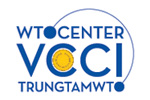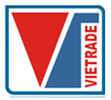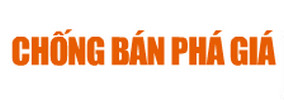
The European Green Deal will significantly impact some areas of Vietnam's exports to the EU, and businesses need to be aware of these changes to take advantage of new opportunities.
Environmental protection affects consumer behavior
The European Green Deal (EGD) was announced by the European Commission in 2019. The EGD is a package of actions to reduce greenhouse gas emissions and minimize resource use while achieving economic growth. This means that products sold in the EU market must meet higher sustainability standards. This Agreement has an impact beyond the EU's territory, directly affecting global manufacturers and exporters, including Vietnam.
A series of strategies and plans were put forward. The Farm to Fork Strategy is worth noting, which aims to make food environmentally friendly. One of the most important goals is to reduce pesticide use by 50% by 2030. The circular economy action plan aims to make sustainable products the norm in the EU through regulations on circular processes, sustainable product design, waste reduction, reuse or recycling of all types of packaging by 2030.
In the 2030 Biodiversity Strategy, the EU wants to reduce biodiversity loss and greenhouse gas emissions by motivating manufacturers to create products that do not contribute to deforestation. The sale of goods produced on deforested and degraded land will be prohibited. Affected products include coffee, beef, palm oil, soybeans, cocoa and wood manufacturers.
The carbon adjustment mechanism aims to prevent carbon leakage by imposing a carbon tax on imports of certain goods from outside the EU. This mechanism will initially only apply to fertilizers, iron, steel and energy.
In the Nordic market, the Vietnam Trade Office in Sweden evaluates that Nordic countries are always at the forefront of environmental protection issues. During the COP27 climate change forum, all Nordic countries reaffirmed and highlighted the importance of their responsibility to protect the environment and reduce the impact of climate change. In particular, in the 2023 budget estimates of these countries, there are budget expenditures for green investment activities and support for environmental protection. Environmental protection issues will continue to influence the consumption behavior of Northern Europeans. To support businesses in promptly grasping regulations and market trends, the business recently compiled the book "The European Common Agreement and its Impact on Businesses Exporting to the Nordic Region." Therefore, businesses can grasp it to adjust production and approach new markets.
Actively change to adapt and welcome opportunities
The Vietnamese Trade Office in Sweden said that the European Green Deal could impact Vietnam's exports to the EU in many ways, depending on the nature of the exported goods and the specific measures the Agreement took. Some key points, such as sustainability standards, may affect Vietnam's exports to the EU. If the EU introduces new sustainability standards for imports, Vietnamese exports may need to meet these standards to be sold on the EU market. This may require investment in new technology, processes and certifications.
As for requirements on environmentally friendly design, if the EU introduces new requirements on environmentally friendly design for products, exports need to meet the requirements and businesses need to Invest in research and development, product design and process improvement.
Regarding green taxes, if the EU introduces new green taxes or levies on imported goods and services with high greenhouse gas emissions or environmental impacts, this could increase export costs from Vietnam to EU. Besides, for the Carbon Border Adjustment Mechanism, if the EU implements the Carbon Border Adjustment Mechanism, this may impose a carbon price on Vietnam's exports to the EU, increasing export costs.
The European Green Deal is expected to increase the cost of imports with high environmental impacts while promoting more sustainable and environmentally friendly products. Therefore, if Vietnamese exports are not environmentally friendly or sustainable, they may be less competitive in the EU, while sustainable and environmentally friendly exports may benefit from increased demand.
One of the industries that could be affected by this Agreement is the textile and footwear industry. The EU is a large market for exporting Vietnamese textiles, garments and beautiful shoes. The European Green Deal will require textile products to be manufactured using environmentally friendly materials and processes and meet strict eco-labelling and sustainability standards. Vietnamese businesses in this sector must adjust production processes and invest in new technology to remain competitive. For the packaging industry, packaging must also be made of environmentally friendly materials and completely recyclable. This will impact Vietnamese businesses' packaging production and packaging for export products.
Another sector that could be affected by the European Green Deal is agriculture and fisheries. The Green Deal sets out a more sustainable and environmentally friendly approach to agriculture, which will require Vietnamese businesses to meet new standards of sustainable farming practices and food production while investing in new technology and changing production processes to minimize waste and reduce the use of toxic chemicals. The iron and steel industry is also affected by the Green Deal and its target of reducing the use of energy-intensive materials and switching to more sustainable materials.
Although the European Green Deal poses challenges for Vietnamese businesses, according to the Vietnam Trade Office in Sweden, the Agreement also creates new development opportunities. Vietnamese businesses must be clearly aware of the changes the Agreement will bring and be ready to adapt to these new challenges to maintain competitiveness in the EU market. At the same time, adapt to new trends and promote production and sales of sustainable and environmentally friendly products for long-term benefits.
Therefore, to prepare for the impacts of the European Green Deal, the Trade Office recommends that Vietnamese businesses update information on the latest developments in the European Green Deal and any regulations, new policies, strategies or plans to implement this Agreement; also assess the potential impact of the European Green Deal on business operations and exports, and identify any areas that may need to be improved to meet new sustainability standards.
In addition, consider adopting more sustainable and environmentally friendly measures, such as reducing greenhouse gas emissions, increasing energy efficiency and using recycled materials. Moving from a production and export model that only focuses on output to a modern production model that focuses on environmental factors, sustainable development, digital transformation, and application of new technologies in production.
Source: VCN
Keywords: import, export, EU, market



















